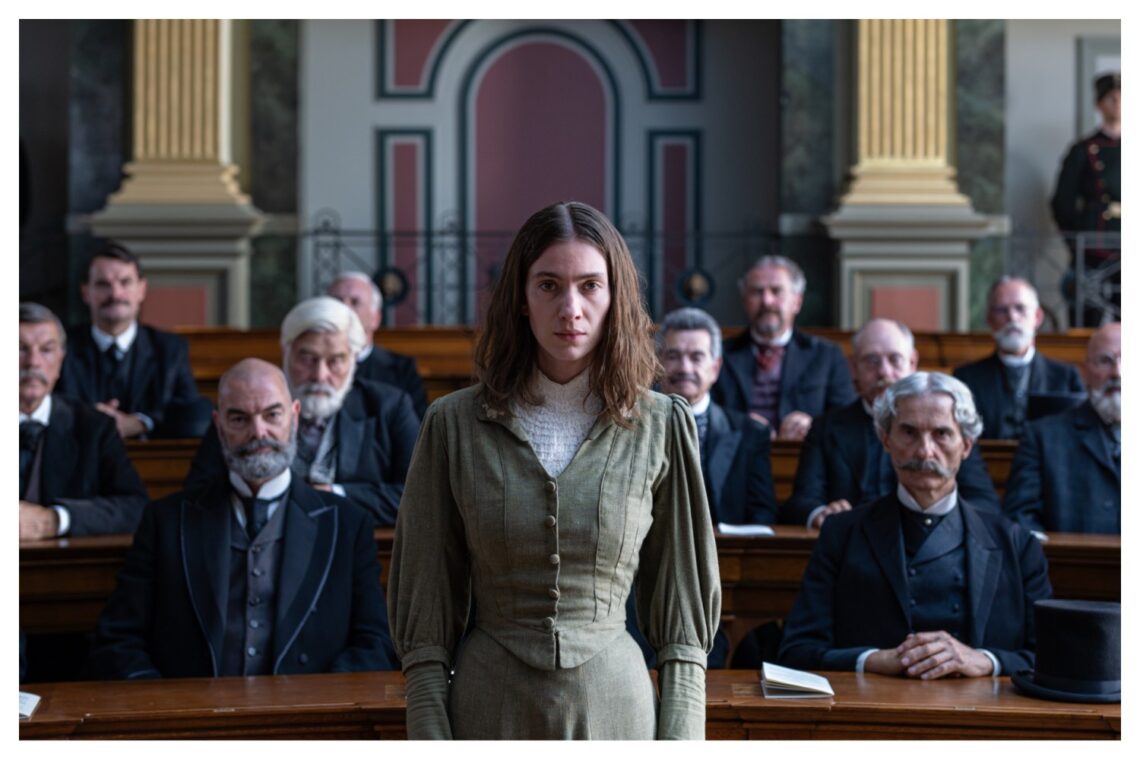A gripping tale of justice and change: “Frieda’s Case”
Unveiling a dark chapter in Swiss history
In her remarkable debut feature film, “Frieda’s Case”, German-Swiss director Maria Brendle delves into a little-known yet profoundly significant murder trial in early 20th-century Switzerland. The film, based on true events, explores themes of shame, morality, and the quest for emancipation through the story of Frieda Keller, a young seamstress accused of murdering her five-year-old son in 1904. The film had its world premiere at the Zurich Film Festival.
Crafting a compelling narrative
Despite the grim subject matter, Brendle aimed to create a captivating story that would resonate with audiences. “This is the true story of a woman who murdered her own child,” Brendle explains. “I asked myself, what kind of person is capable of such an unimaginable act?”
To avoid making the film feel overwhelmingly somber, Brendle focused on developing the relationships between key characters, creating a more balanced ensemble drama. “I wanted the audience to truly engage with the movie, to immerse themselves in the characters and the story,” she says. This approach allowed Brendle to explore Frieda, a figure about whom little is known, in greater depth.
Exploring character dynamics
Stefan Merki and Rachel Braunschweig play the prosecutor and his wife, Walter and Erna Gmür. “They were fantastic together. When I saw the chemistry between them, I thought, okay, we need to delve deeper into their relationship,” Brendle notes. The dynamic between these characters provides some of the film’s lighter moments.
Similarly, the story follows Frieda’s defense lawyer, Arnold Janggen (Max Simonischek), and his wife Gesine (Marlene Tanczik), a strong and independent woman from Berlin who is unafraid to speak her mind. Brendle rewrote the initial script to highlight the female characters, emphasizing their vital roles in the story. “Although it was an era dominated by men, it was also a time when women began shaping the world we live in today,” she adds.
Highlighting female empowerment
Brendle was particularly fascinated by the female characters and their relationships. “I rewrote the relationships between them and the other characters, aiming to show that there were women who sought to make a difference and create opportunities for change,” she explains. This focus on female empowerment is evident in the interactions between Frieda and Erna, the prosecutor’s wife, which allow for unexpected developments.
Impact on Swiss legal history
The film also examines how the case eventually led to changes in the Swiss Criminal Code, albeit decades later. The tragic circumstances surrounding the murder and Frieda Keller’s background shed light on a misogynistic legal system that was unfairly tilted against women and exempted married men from being prosecuted for sexual assault. The case became a symbol of that injustice and mobilized women’s movements in Switzerland, demanding equal rights for all. This eventually led to a new criminal code and the abolishment of the death penalty.
“It took 30 years to change the laws – I was shocked to learn that,” Brendle says. At the time, a man couldn’t be prosecuted for rape if he was married. According to the law, the anger of his wife was considered punishment enough, she explains.
A director’s ongoing mission
Brendle has explored similar themes of oppressive social traditions and their impact on women in her short film “Take and Run” (“Ala kachuu”), for which she received an Oscar nomination in 2022. The film follows a young woman in Kyrgyzstan who falls victim to bride kidnapping. “It’s a similar issue in another time and another part of the world. I discovered that bride kidnapping is quite common in some countries, not just Kyrgyzstan. I was really astonished because, as a woman in Switzerland, I can go out without the fear of being kidnapped by a man and forced into another family – that’s not something I have to worry about in my life. I wanted to highlight that this kind of reality exists in our world, and there are women facing these challenges every day. It’s closely tied to the topic of women’s rights and what it means to be a woman in a male-dominated society.”
Looking ahead
“Frieda’s Case” is produced by Condor Films along with Swiss Radio and Television. Brendle is currently writing a new story, a fact-based tale set during World War II about a woman in Germany who saves a city from being bombed by French soldiers while working against the Nazi regime. “I love true stories – sometimes life offers such incredible stories that they simply have to be told,” she says.
Did you enjoy this article? Share it on your social channels and let us know your thoughts! Don’t miss out on the latest updates! Follow us on social media to stay informed about the newest releases.

 Italian
Italian







